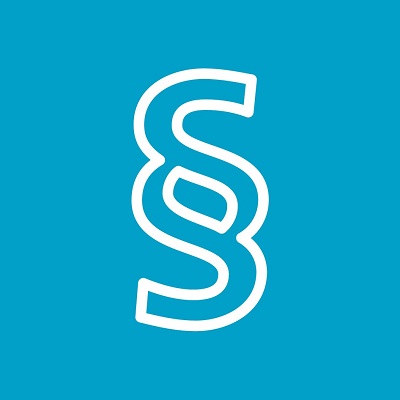Portal Law Studies and Economics
The Portal Law Studies and Economics offers support for studies, research and teaching. Here you will find news from the fields of law studies and economics, information on events and courses organized by the subject librarians, useful tools for academic work and much more.
Tools
AI research tools
NotebookLM
NotebookLM

With this Google online tool, you can upload documents, query them and have tasks carried out based on the documents. The tool can be accessed with your Google account and used on computers. The mobile app is also available. For organizational or enterprise versions, additional setup may be required. The audio overview feature allows users to generate audio summaries based on their sources/information in a conversational style. Premium features are available with a paid subscription. It is powered by Gemini 2.0.
Elicit
Elicit
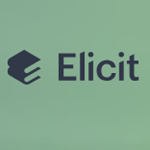
Elicit offers an efficient way to identify papers, explore existing research, and obtain an overview of a topic and key concepts. It provides feedback on research questions, and can generate structred report summaries. The tool automates phases of the literature review process, such as finding relevant papers, extracting data, and exporting results. The notebook feature allows for tracking and optimising research workflows such as: finding papers, PDF upload, data extraction, and concept mapping across papers. Results can be sorted by most/least cited, relevancy, recency, and filtered by publication dates, journal quality, study types, etc. Narrative summaries are offered with the top 4 (free Elicit Basic) or top 8 (paid Elicit Plus, Elicit Pro) references. Additional features such as "accuracy mode," "Add a step," or "Ask a new question" help improve results. Papers can be extracted using the tool's suggested columns or by user-defined queries of the text. Users can export search results into RIS, BiB, CSV file (Elicit Plus, Elicit Pro). Presently, Elicit may not offer suitable results for all disciplines/fields of study. The semantic search does not recognise advanced search syntax (e.g., wildcards, truncation).
Perplexity AI
Perplexity AI

Perplexity AI is a conversational search engine that answers queries on the basis of a large language model. Perplexity was launched in 2022 and generates answers using recognised sources from the web and cites links within the text response. Creating an account offers access to deep research and perplexity labs. Paid subscribers have full access to deep research feature for indepth analysis and reports, and preplexity labs to create interactive workflows.
ResearchRabbit
ResearchRabbit
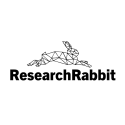
ResearchRabbit
ResearchRabbit is a free research tool. It allows you to find publications and visualise their connections in a field of study. ResearchRabbit facilitates forward and backward searches for citations and explores connections between publications that have already been identified. ResearchRabbit's filters and options are limited, and results cannot be filtered by date or type of publication. Forward citation results are not always reliable, i.e. not all publications citing a specific title will necessarily be found.
Organising images and designing posters
Canva
Canva

The graphic design software with templates for social media, presentations or flyers can be used as a desktop version or app. Graphics can be edited by several people and can be exported in various formats for printing or digital use.
Tropy
Tropy
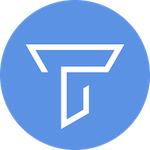
With Tropy, digital image collections can be conveniently managed and annotated - for example, photos of archive material can be clearly arranged. Tropy was developed by the Roy Rosenzweig Centre especially for a research context and, like its sister programme Zotero, is available free of charge and open source.
Analysing and visualising data, statistics & data management
Anaconda
Data Science Platform
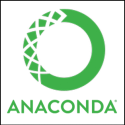
Anaconda
Anaconda package manager for Python and R: Anaconda is a free toolset for data science applications. It enables easy installation and combination of a large selection of Python and R code libraries and effective management of programming environments and software packages.
CATMA
Catma
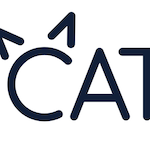
CATMA (Computer Assisted Text Markup and Analysis) is a browser-based tool that, modelled on the traditional philological workflow, digitally supports the manual annotation and analysis of texts. CATMA is available free of charge, is open source and published by the CATMA team at the University of Hamburg.
DARIAH TopicsExplorer
DARIAH TopicsExplorer
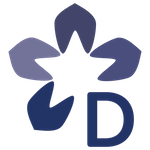
Free-to-use software designed for beginners to try out topic modelling for their own texts. Topic modelling analyses the distribution of semantic word groups in text collections. It is suitable both for an explorative examination of a corpus and for the extraction of features for computer-aided text classification. The DARIAH TopicsExplorer lists recurring semantic word groups in texts and shows how strongly they are represented. This shows which texts in a given corpus are particularly close to each other in terms of content. Results can be exported in universally readable CSV format.
R
For statistical computing
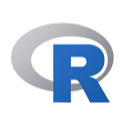
The R project
R is an excellent open-source software for statistical analyses and graphical representations.
Voyant
Voyant
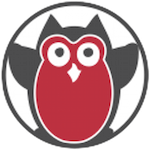
A toolbox of different tools with which digital analysis methods can be applied to texts or text collections. The Voyant Tools can be used for explorative observations or for quantitative analyses of individual texts or text collections as well as for various forms of text visualisation. Classic examples are the analysis of word frequencies or the recognition of pattern in language use. The Voyant tools are web-based and can be used free of charge; the software is open source.
Digital scholarship
DS Digital Toolbox
DS Digital Toolbox
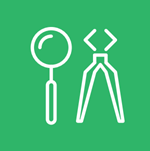
The DS Digital Toolbox of the University Library Bern offers Jupyter Notebooks for typical tasks when working with data: - Use of APIs of catalogues, full-text platforms and databases: Swisscovery, E-Rara, E-Manuscripta, E-Periodica, Crossref, OpenAlex, Swissdox@LiRI - Data cleansing of data spreadsheets - Segmentation of documents in preparation for OCR - Reading text from PDFs and text recognition (OCR) - Natural Language Processing (NLP) Basics - Querying and analysing library metadata using SRU
Jupyter
Jupyter
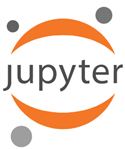
Jupyter is an open-source integrated development environment (IDE) for various programming languages such as R and Python from the field of data science. Jupyter follows the literature programming approach, in which code, documentation and output are summarised in one document (Jupyter Notebook). Analysis steps can thus be explained in detail, visualisations can be integrated directly and the content can be exported in various formats. Jupyter can be used locally, online via JupyterLite or with a Google account in Google Colab. For members of Swiss universities and research institutions, EPFL provides an online JupyterHub environment (login via SWITCH edu ID).
OpenRefine
OpenRefine

OpenRefine is an open-source software with an intuitive user interface for the manipulation of tabular data. OpenRefine provides extensive functions for data cleansing and transformation, which are easy to document and reproduce thanks to the processing history. A special feature is the "Reconciliation" function, which can be used to check and enrich your own data against external data providers (e.g. Wikidata, Gemeinsame Normdatei, FactGrid, ORCID, Getty). OpenRefine is available for several operating systems and can be tested online without having to be installed.
Collaborative work in projects and presentations
Miro
Miro

Miro is a presentation tool, a flipchart and a collaborative whiteboard all in one. Notes can be attached to an infinite canvas, various layouts can be designed and concept maps and graphics can be created collaboratively. The Miro board can be scaled as required. Students and members of universities have the option of setting up a free education account (Education Plan) with the full range of functionalities. Only registered users can work together under a free licence.
Mentimeter
Mentimeter

Mentimeter is a so-called Audience Response System (ARS) and is used to activate learners and involve the audience in presentations, whether in teaching, scientific presentations or team meetings at the workplace. Mentimeter is available free of charge to employees and students of the University of Bern via their UniBE account.
Padlet
Padlet
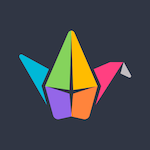
Padlet offers various types of digital pinboards that can be edited collaboratively. You can easily attach notes, post images and integrate music or videos – all common file types are supported. Three digital pinboards (“padlets”) can be created for free, but registration is required.
Trello
Trello

A cloud-based tool for task and project management for individuals and teams. Tasks can be assigned and sorted using lists, cards, calendars and timelines. It is easy to use. The free version has unlimited storage space and allows up to 10 projects. Registration is required. The pro version has some additional features. It can be tested for free for a week but is not freely available through the University of Bern.
Edupad
Edupad
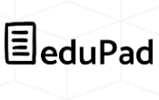
An easy-to-use text editor. Several people can work on a text document at the same time. Changes are immediately visible in colour. The platform is maintained in Switzerland and is based on the open source service EtherPad. EduPad is free of charge and no registration is necessary.
Citation management
BibTeX
BibTex
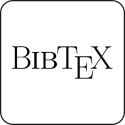
BibTeX is recommended for creating citations and bibliographies in documents created with LaTeX word processing. BibTeX is free and open source and is included in the usual LaTeX standard installations (e.g. MikTex for Windows, MacTex for Mac, TeX Live for Linux). The bibliographic data is managed in a .bib file, which can be created and modified with various reference management softwares. The open source software JabRef is specially tailored to BibTeX files. JabRef is platform-independent and runs on all common operating systems.
Citavi
Citavi

Citavi supports you in writing papers: from researching, collecting and organising references and citations to formatting citations and creating a complete bibliography. Citavi offers helpful functionalities for organising knowledge, especially for humanities scholars and social scientists. Members of the University of Bern and the PH Bern can use Citavi free of charge with a campus licence.
EndNote
EndNote
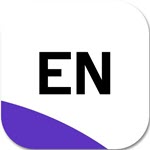
EndNote or EndNote Online supports you in managing references, writing papers and academic publishing: from searching for literature to collecting and organising references, formatting citations and creating a complete bibliography. Members of the University of Bern receive a discount on the product licence via the UniBE software shop.
Mendeley
Mendeley

Mendeley is a free reference management software that is available for Windows, Mac and Linux. It is used to organise scientific articles and PDFs and to create citations and bibliographies. Mendeley makes collecting, managing and sharing literature and in-text citations simple and straightforward.
Zotero
Zotero
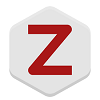
Zotero is a reference management software that can be used on all common operating systems. Simple to use, it is the ideal software for managing literature, even for smaller papers, and can therefore be used profitably right from the start of your studies. Zotero is free and open source. The University of Bern and the PHBern have set up a Zotero Institutional Plan for Zotero cloud storage. By registering with the institutional e-mail address, unlimited storage is available in the Zotero Cloud.
Mindmapping and brainstorming
Coggle
Coggle

Mind maps, diagrams, branching trees - the free mind mapping tool Coggle helps you to structure complex issues. The web application enables real-time collaboration in (research) teams: users can work on the same diagram in parallel directly via the browser. Ideas can thus be developed further together. The basic version of Coggle is free, but the range of functions is very limited. Registration is required for use.
MindMeister
MindMeister

MindMeister is an online mind mapping tool with a wide range of functions and possible uses. In addition to classic brainstorming (alone or in groups), MindMeister also supports the creation of notes, is suitable for project planning and can be used as presentation software. MindMeister is completely web-based. The tool can be accessed in any browser at any time. The Trusted Cloud competence network classifies MindMeister's cloud services as high-quality in terms of transparency, data security and legal compliance. The basic version of MindMeister is free of charge, but the range of functions is limited. Registration is required for use.
Mindwendel
Mindwendel
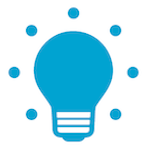
Mindwendel is a minimalist tool for collecting and evaluating ideas collaboratively. Brainstorming starts with a question that is answered by the participants. The contributions can then be sorted, colour-coded and liked by the team members. Like all tools from the kits team, Mindwendel is free and can be used without registration. The data is transmitted end-to-end encrypted.
Creating and managing notes
Logseq
Logseq
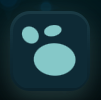
Logseq is a free open source software for creating and managing notes, annotating PDFs or task management. The Markdown-based tool can be used to structure and network knowledge hierarchically. A graph view makes it possible to visualise relationships between notes. All data is stored locally, and the application also allows for the integration of numerous other applications such as Zotero.
Notion
Notion
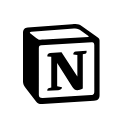
Notion is an "all-in-one" tool that can be used to create notes, manage tasks, create databases and manage projects. The structure can be designed flexibly, and there are also numerous templates for customisation. The platform is cloud-based and accessible both locally and as a browser version. Notion is free of charge for students, teaching staff and student organisations.
Research tools
Scientific writing and publishing
Altmetric Explorer
Altmetric Explorer

Altmetric Explorer is a service that can be used to measure the reception and dissemination of research results on the internet. Unlike traditional bibliometric approaches, it does not measure citations in scientific publications, but rather the dissemination of research on the internet, for example via social media channels such as X or in blogs as well as in non-academic newspapers, Wikipedia, policy documents and many other sources.
ORCID
Orcid
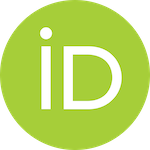
ORCID iD is a 16-digit number combination that uniquely identifies researchers and their publications regardless of spelling variants or transcriptions of one’s name. You can register your personal ORCID number free of charge. The personal profile on orcid.org can be used to manage information on publications, training and employment as well as funding. It is possible to choose individual authorisation settings for each item. ORCID is a non-profit initiative supported by universities, academies, funding organisations, scientific publishers and libraries worldwide.
Pandoc/Markdown
Pandoc/Markdown
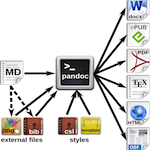
Pandoc is a document converter that allows for text documents to be converted into numerous formats. Scientific papers can be written in an extended version of Markdown, which also makes automatic formatting of reference lists and citations possible. Pandoc is free software and runs on Mac, Windows and Linux.
Turnitin
Turnitin
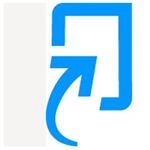
The University of Bern uses Turnitin to detect plagiarism. The software issues detailed test reports that can be edited interactively. Turnitin can be used by lecturers and university administration staff with their Switch edu-ID via a browser login. Students cannot use Turnitin to scan work.
SciFlow
SciFlow
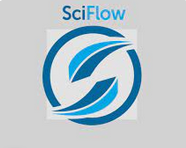
SciFlow makes it easy to write and format scientific texts – whether for a specific journal or as a student paper. SciFlow offers many templates, grammar checking in German and English, an upload function for Word manuscripts and the option of citing with Zotero, Mendeley etc. For groups, SciFlow enables real-time collaboration and the shared use of all references in the text. Finished work can be exported to PDF, LaTeX and Word, among others. The Bern University Library has licensed SciFlow for the entire UniBE campus.
Networking
Fragab
Fragab
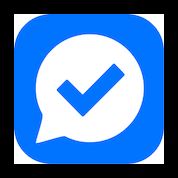
A Doodle alternative that goes beyond scheduling. Fragab is also helpful when organising meetings, celebrations etc., as it not only possible to create lists of participants, but also to assign tasks. Secret surveys are also possible. Fragab can be used with an app (Android and iOS) or via the website.
Knowledge Commons
Knowledge Commons
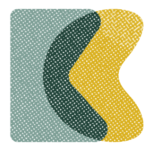
Non-commercial alternative to Academia.edu and ResearchGate, which allows networking and collaboration with other researchers (before May 2024: Humanities Commons). The infrastructure is open source and free to use. The associated open access repository Core is suitable for the first or second publication of open access publications.
Nuudel
Nuudel

The appointment managing tool allows you to create surveys free of charge that are not saved. It is possible to plan appointments or create opinion polls for any question. The service is offered by Digitalcourage e.V. without user tracking and without saving IP addresses.
ResearchGate
ResearchGate

ResearchGate is a commercial academic social network for researchers from all scientific disciplines. For legal reasons, we advise against uploading published articles to ResearchGate.
Creating educational videos
Camtasia
Camtasia

Camtasia (Techsmith) can be used to create and edit videos. For example, you can record and comment a screen- or slidecast (with or without speaker image). The resulting videos can be edited and supplemented with additional effects and transitions. The computer microphone can be used for recording, but the use of an external microphone (e.g. a headset) is recommended for better sound quality. After completion, the video is exported from Camtasia. Members of the University of Bern can download the software free of charge from the university's software shop ("private order", "buy" free licence) and install it locally (Windows and Mac). Techsmith also offers a free trial version.
Loom
Loom

Loom is a video tool that can be downloaded to the desktop or used as an extension in the Chrome browser. The free starter version is simple and intuitive. It records the screen with integrated sound and camera. The videos are saved in the Loom cloud and can be sent via a link. Registration is necessary. Members of academic institutions receive discounts on premium versions.
Contact and consultation
Contact

- Name / Titel
- Bernhard Dengg
- Funktion
- Head of the law and economics department and coordinator print media acquisitions, subject librarian law
- bernhard.dengg@unibe.ch
- Phone
- +41 31 684 87 91
- Phone2
- +41 31 684 82 67

- Name / Titel
- Uwe von Ramin
- Funktion
- Subject librarian law
- uwe.vonramin@unibe.ch
- Phone
- +41 31 684 47 37

- Name / Titel
- Stefanie Schaller
- Funktion
- Head of Law Research Library
- stefanie.schaller@unibe.ch
- Phone
- +41 31 684 55 79
- Phone2
- +41 31 684 94 78

- Name / Titel
- Dr. Stefan Ittner
- Funktion
- Subject librarian political science and economics
- stefan.ittner@unibe.ch
- Phone
- +41 31 684 95 12

